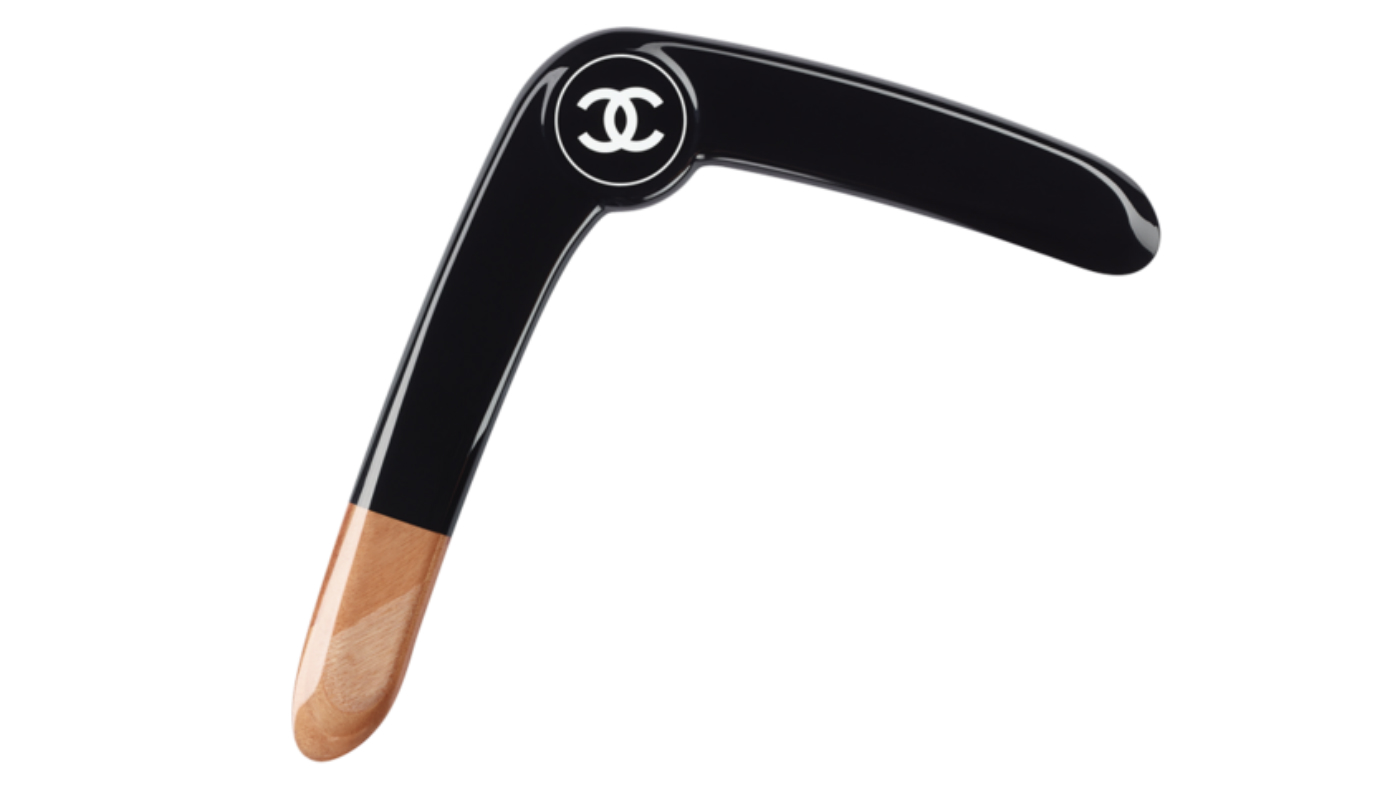Chanel £1,130 boomerang sparks cultural appropriation row
Fashion label's 'accessory' outrages aboriginal artists and activists

A free daily email with the biggest news stories of the day – and the best features from TheWeek.com
You are now subscribed
Your newsletter sign-up was successful
Chanel is at the centre of a cultural appropriation storm after it was accused of "humiliating" aboriginal Australians by selling a boomerang as part of its latest collection.
The £1,130 wood and resin "boomerang", bearing the fashion house's interlocking CC logo, appears in the accessories section, alongside a £2,860 beach racket and ball set, a £1,300 tennis racket and a £330 set of tennis balls.
It hit the headlines when US make-up artist Jeffree Star shared an image of one to online followers on Twitter, The Guardian reports.
The Week
Escape your echo chamber. Get the facts behind the news, plus analysis from multiple perspectives.

Sign up for The Week's Free Newsletters
From our morning news briefing to a weekly Good News Newsletter, get the best of The Week delivered directly to your inbox.
From our morning news briefing to a weekly Good News Newsletter, get the best of The Week delivered directly to your inbox.
The piece was greeted with scorn and derision from indigenous Australians online.
Aboriginal artist Alison Page expressed disbelief at Chanel's move given multiple recent instances in which fashion companies have been accused of cultural appropriation.
It marked "a new level of ignorance", she told the Daily Telegraph, adding: "It's 2017 and people haven't worked out yet that appropriating another culture’s artefacts and putting your brand on it is offensive."
Madeline Hayman-Reber, a member of the Gomeroi people, argued the controversy was a symptom of the larger issue of indigenous communities and their artwork being exploited and marginalised.
A free daily email with the biggest news stories of the day – and the best features from TheWeek.com
"Fake art is a massive problem in the world of indigenous art, and boomerangs are the tip of the iceberg," she wrote on Australia's SBS news site.
She added that boomerangs, handmade by indigenous craftsmen, were part of aboriginal heritage and imbued with cultural meaning. A designer brand was using one to make money was "a slap in the face to all the indigenous artists actively sharing Aboriginal culture", she said.
Although similar objects have been used by peoples around the world, the boomerang has come to be strongly identified with the native inhabitants of Australia, who historically used the curved tool as a weapon for hunting.
The world's oldest surviving boomerang , found in a peat bog in South Australia, is believed to be 10,000 years old.
A Chanel spokesman said the label was "extremely committed to respecting all cultures and regrets that some may have felt offended", but did not confirm whether the boomerang will remain on sale.
-
 The Olympic timekeepers keeping the Games on track
The Olympic timekeepers keeping the Games on trackUnder the Radar Swiss watchmaking giant Omega has been at the finish line of every Olympic Games for nearly 100 years
-
 Will increasing tensions with Iran boil over into war?
Will increasing tensions with Iran boil over into war?Today’s Big Question President Donald Trump has recently been threatening the country
-
 Corruption: The spy sheikh and the president
Corruption: The spy sheikh and the presidentFeature Trump is at the center of another scandal
-
 Epstein files topple law CEO, roil UK government
Epstein files topple law CEO, roil UK governmentSpeed Read Peter Mandelson, Britain’s former ambassador to the US, is caught up in the scandal
-
 Iran and US prepare to meet after skirmishes
Iran and US prepare to meet after skirmishesSpeed Read The incident comes amid heightened tensions in the Middle East
-
 Israel retrieves final hostage’s body from Gaza
Israel retrieves final hostage’s body from GazaSpeed Read The 24-year-old police officer was killed during the initial Hamas attack
-
 China’s Xi targets top general in growing purge
China’s Xi targets top general in growing purgeSpeed Read Zhang Youxia is being investigated over ‘grave violations’ of the law
-
 Panama and Canada are negotiating over a crucial copper mine
Panama and Canada are negotiating over a crucial copper mineIn the Spotlight Panama is set to make a final decision on the mine this summer
-
 Why Greenland’s natural resources are nearly impossible to mine
Why Greenland’s natural resources are nearly impossible to mineThe Explainer The country’s natural landscape makes the task extremely difficult
-
 Iran cuts internet as protests escalate
Iran cuts internet as protests escalateSpeed Reada Government buildings across the country have been set on fire
-
 US nabs ‘shadow’ tanker claimed by Russia
US nabs ‘shadow’ tanker claimed by RussiaSpeed Read The ship was one of two vessels seized by the US military